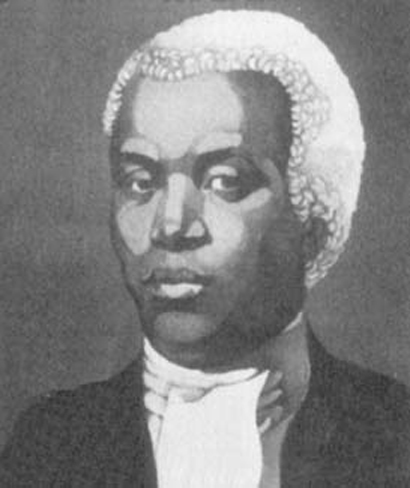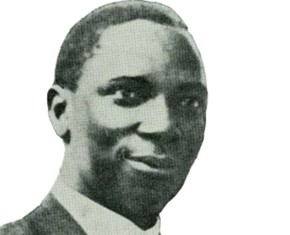The views expressed in our content reflect individual perspectives and do not represent the authoritative views of the Baha'i Faith.
What oppression is more grievous than that a soul seeking the truth, and wishing to attain unto the knowledge of God, should know not where to go for it and from whom to seek it? – Baha’u’llah, The Book of Certitude
Benjamin Banneker searched for freedom from the oppression of slavery 72 years before the Baha’i Faith began. A brilliant almanac author, farmer, scientist and surveyor, Benjamin was also a black man living in a nation where the enslavement of his race was the law of the land.
On August 19, 1791 Benjamin wrote to Secretary of State Thomas Jefferson for relief from such grievous subjugation:
. . .one universal Father hath given being to us all; and that he hath not only made us all of one flesh, but that he hath also, without partiality, afforded us all the same sensations and endowed us all with the same faculties; and that however variable we may be in society or religion, however diversified in situation or color, we are all of the same family, and stand in the same relation to him.
He asked Thomas Jefferson to “lend your aid and assistance to our relief, from those many distresses, and numerous calamities, to which we are reduced.” Eleven days later Thomas Jefferson responded:
Sir, I thank you sincerely for your letter of the 19 and for the Almanac it contained. No body wishes more than I do to see such proofs as you exhibit, that nature has given to our black brethren, talents equal to those of the other colours of men and that the appearance of a want of them is owing merely to the degraded condition of their existence both in Africa and America.
I can add with truth that no body wishes more ardently to see a good system commenced for raising the condition both of their body and mind to what it ought to be, as fast as the imbecility of their present existence, and other circumstance which cannot be neglected, will admit.
This semi-sympathetic response seemed consistent with the ideals of the primary author of The Declaration of Independence; whose first draft read: “We hold these truths to be sacred & undeniable; that all men are created equal.”
Unfortunately, Thomas Jefferson’s actions failed to match his ideals or his rhetoric. Like many educated individuals of his time, he decried slavery–but could not cut himself away from its perverse prerogatives. Here Jefferson explains from experience the effects of slavery on its practitioners:
There must doubtless be an unhappy influence on the manners of our people produced by the existence of slavery among us. The whole commerce between master and slave is a perpetual exercise of the most boisterous passions, the most unremitting despotism on the one part, and degrading submissions on the other. Our children see this, and learn to imitate it; for man is an imitative animal. . . . The parent storms, the child looks on, catches the lineaments of wrath, puts on the same airs in the circle of smaller slaves, gives a loose to his worst of passions, and thus nursed, educated, and daily exercised in tyranny, cannot but be stamped by it with odious peculiarities. The man must be a prodigy who can retain his manners and morals undepraved [sic] by such circumstances. – Notes on the State of Virginia.
The passage above reveals Jefferson’s personal intimacy with the corrupting dynamics of slave ownership. He owned hundreds of slaves, and only freed a handful during his lifetime. Historians agree that as a slave owner and fervent defender of State’s rights to preserve the institution of slavery, Jefferson had terribly conflicted interests, some of them religious.
In the New Testament, the Bible admonishes slaves in six separate verses to “obey your earthly masters in everything”. Passages from Ephesians 6:5-6; Colossians 3:22; 1 Timothy 6:2; and Titus 2:9 all justify slavery. 1 Peter 2:18 states “Slaves, in reverent fear of God submit yourselves to your masters, not only to those who are good and considerate, but also to those who are harsh.”
Despite the Biblical injunctions, Jefferson knew that slavery was wrong–but as to how to end it in America, he died confounded. He did not know where to turn for the wisdom he needed to reconcile the differences between his high ideals and his prized personal interests.
We should not be surprised at this. This issue–too thorny, extensive and perplexing at the time—had resisted solutions for centuries.
From a Baha’i perspective, only God wields the authority to resuscitate religion, abrogate the laws of previous Faiths, and endow humans with the power to subordinate their selfish interests and deeply cherished personal prerogatives to nobler notions and higher ideals:
The corrosion of ungodliness is eating into the vitals of human society; what else but the Elixir of His potent Revelation can cleanse and revive it? Is it within human power… to effect in the constituent elements of any of the minute and indivisible particles of matter so complete a transformation as to transmute it into purest gold? Perplexing and difficult as this may appear, the still greater task of converting satanic strength into heavenly power is one that We have been empowered to accomplish. The Force capable of such a transformation transcendeth the potency of the Elixir itself. The Word of God, alone, can claim the distinction of being endowed with the capacity required for so great and far-reaching a change. – Baha’u’llah, Gleanings From the Writings of Baha’u’llah
In the next essay in this series, we will explore the impact of the advent of Baha’u’llah on the terrible institution of slavery.

















Comments
Sign in or create an account
Continue with Googleor